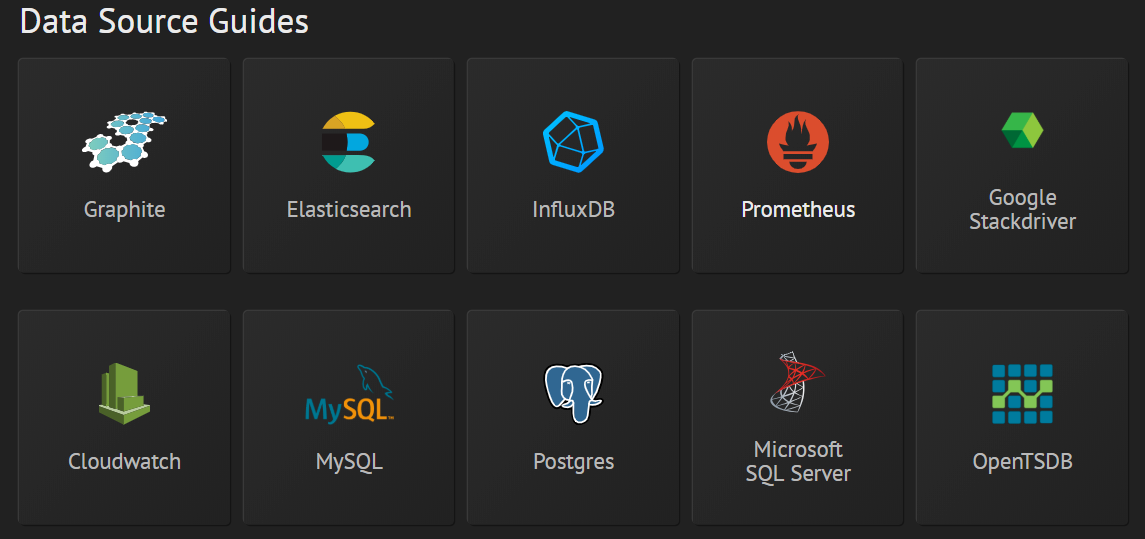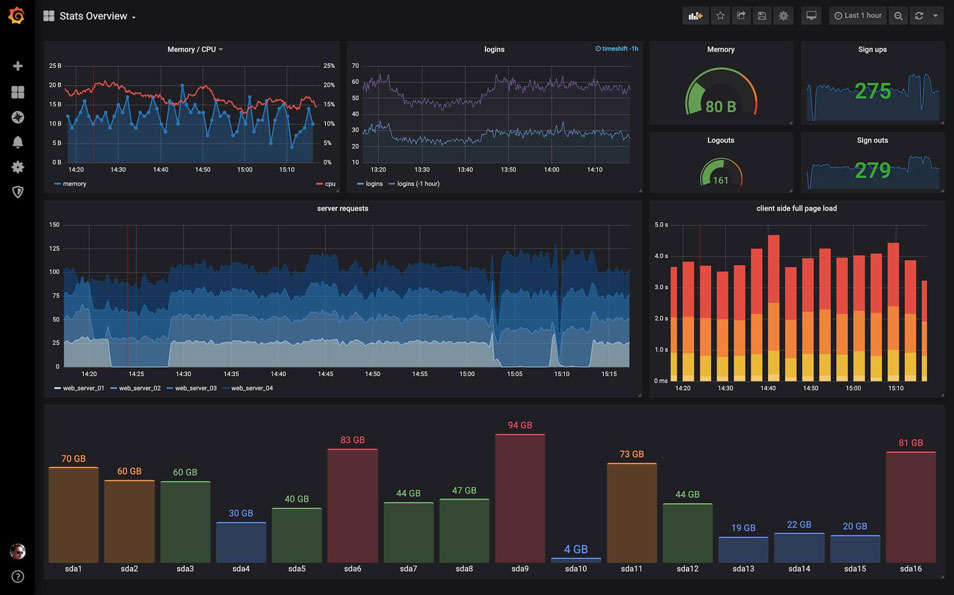

- PROMETHEUS CLOUDWATCH EXPORTER INSTALL
- PROMETHEUS CLOUDWATCH EXPORTER UPDATE
- PROMETHEUS CLOUDWATCH EXPORTER SOFTWARE
- PROMETHEUS CLOUDWATCH EXPORTER CODE
You can find a complete list of namespaces at AWS Services That Publish CloudWatch Metrics. How do I look up my Metrics account token?Ĭomma-separated list of namespaces of the metrics you want to collect. Find it under Settings > Manage accounts. Token for shipping metrics to your Logz.io account.
PROMETHEUS CLOUDWATCH EXPORTER CODE
For example if your region is US, then your region code is us. Note: This is the region that you will collect metrics from. You can find this in the AWS Console region menu (in the top menu, to the right).
PROMETHEUS CLOUDWATCH EXPORTER SOFTWARE
Notices for 3rd Party Software included with the Logz.io Platformĭocker run -name cloudwatch-metrics \ -e TOKEN => \.Opsgenie notifications for resolved metrics alerts.Send your data with Telemetry Collector.Azure pay-as-you-go Portal single sign-on.Migrating accounts between hosting regions.Manage Log, Metrics, Tracing, and SIEM accounts.Select dashboards for your Cloud SIEM Summary page.Configure SIEM to automatically create JIRA tickets by alert.Create sub accounts as a Managed Security Service Provider (MSSP).Set up your Service Performance Monitoring dashboard.Sending demo traces with the HotROD application.Configuring remote write for Prometheus.


Restart the CloudWatch agent by entering one of the following commands. "^catalina_globalrequestprocessor_bytesreceived$" "^java_lang_operatingsystem_freephysicalmemorysize$", "catalina_globalrequestprocessor_bytesreceived": "Bytes", "jvm_gc_collection_seconds_sum": "Seconds", "catalina_manager_activesessions": "Count", "java_lang_operatingsystem_freephysicalmemorysize": "Bytes", "prometheus_config_path": " path-to-Prometheus-Scrape-Configuration-file", Infromation for your sample java application. This will emit Prometheus metrics to port 9404.īe sure to replace the entry point .App with the correct Java application with the Prometheus exporter pattern: 'Catalina(processingTime|sessionCounter|rejectedSessions|expiredSessions)' pattern: 'Catalina(currentThreadCount|currentThreadsBusy|keepAliveCount|pollerThreadCount|connectionCount)' pattern: 'Catalina(requestCount|maxTime|processingTime|errorCount)' Name: catalina_globalrequestprocessor_$3_total pattern: 'java.lang(TotalStartedThreadCount|ThreadCount)' pattern: 'java.lang(FreePhysicalMemorySize|TotalPhysicalMemorySize|FreeSwapSpaceSize|TotalSwapSpaceSize|SystemCpuLoad|ProcessCpuLoad|OpenFileDescriptorCount|AvailableProcessors)' Here is a sample configuration for Java and Tomcat. The config.yaml file is the JMX exporter configuration file.įor more information, see Configuration in the JMX exporter documentation. Replace these parts of the commands with the jar for your application. The example commands in the following sections use The next step is to start the Java/JMX workload.įirst, download the latest JMX exporter jar file from the following location: Hjava, and Tomcat (Catalina), from a JMX exporter on EC2 instances. The CloudWatch agent can collect predefined Prometheus metrics from Java Virtual Machine (JVM), For more information, see prometheus/jmx_exporter. JMX Exporter is an official Prometheus exporter that can scrape and expose A sample configuration file contains the following global
PROMETHEUS CLOUDWATCH EXPORTER UPDATE
Update the configurations that are already in this file, and add additional The CloudWatch agent supports the standard Prometheus scrape configurations as documented The other is for theĬloudWatch agent configuration. One is for the standard Prometheus configurations as documented in The CloudWatch agent with Prometheus monitoring needs two configurations to scrape the
PROMETHEUS CLOUDWATCH EXPORTER INSTALL
The first step is to install the CloudWatch agent on the EC2 instance.


 0 kommentar(er)
0 kommentar(er)
